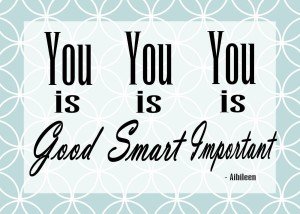They say that words are the most powerful drugs used by mankind. Since time immemorial, writers have resorted to pen and paper to fight battles that violence alone cannot win. Books have always been, and continue to be, the most effective weapons against contemporary issues. In a time where there’s corruption and evils lurking in every corner of life, there is no point trying to escape from them. After all, what is the point of writing if you’re not shedding light on the good, the bad and the ugly of society?
1) To Kill A Mockingbird
Any list of brilliant novels would be incomplete without Harper Lee’s bestselling novel To Kill A Mockingbird. In the novel Lee paints a grim picture of apartheid in Alabama in the 30s, and what intrigues the readers the most is that it is from the point of view of a 6 year old child, Scout. For years to come, Atticus Finch would become the symbol of the righteous lawyer, putting everything at risk for the sake of justice. A rare gem now, in the age of bribery and “sources”.
2) The Awakening
Written at a time when the feminist movement was still gathering force in America, Kate Chopin comes up with her highly controversial novel The Awakening. A woman, tired of keeping up a facade and her mundane daily life, decides to break free of society’s expectations which are imposed upon a woman. And she does so by taking a lover. But like a true tragic heroine, she destroys herself in her quest to be independent, to be her own mistress, to have the freedom to love whom she pleases. Does this ring a bell?
3) The Help
A biting satire on the relationship between the “white”, hence “perfect” housewives and the “black” maids of Jackson, Mississippi by Kathryn Stockett. Narrated from the point of view of Miss Skeeter, a white girl who has been raised by black maids and Minny and Aibileen, two black maids, this novel is sure to win your heart. Although it portrays racial segregation perfectly, one cannot help ignoring the intricacy of human relationships depicted in the novel.
4) The Great Gatsby
It would be safe to assume that this novel can be called F. Scott Fitzgerald’s masterpiece. Fitzgerald sheds light on the glorious Jazz Age, the age of revelry, of easy money and hard drinking, of permissiveness and protest against the strict codes of decorum during war. A young man, Gatsby, trapped between a past he cannot forget and a present that he cannot accept, embarks on a path that will bring him nothing but destruction. The conflict between the spiritually barren upper classes and the romantic, idealist dreams of the “great” Gatsby in a society corrupted by money makes the novel simple yet extraordinary
6) Animal Farm
George Orwell’s satire, Animal Farm is undoubtedly going to be the most thought provoking work of literature that you’ve come across. From the very beginning, the readers realize that the animals in the farm are a metaphor for something else, something sinister and sad, but unfortunately true- the horrors of the Russian Revolution. One of the most iconic dialogues of all time- “All animals are equal, but some animals are more equal than others” continues to haunt you even after you’ve turned the last page.
7) The Kite Runner
Khaled Hosseini’s first novel, The Kite Runner, looks at some sensitive issues, issues that are still considered to be taboo. Apart from the apparent theme of friendship in the background of unrest in Afghanistan, it also highlights a very complex issue- that of the rape of young boys.
8) The Diary of a Young Girl
The haunting words of Anne Frank as she records each aspect of her life in the in her journal which she named Kitty leave a lasting impression on the minds of the readers. Anne and her family were forced to hide in the dilapidated shelter along with another family and a middle aged man to escape from the Hitler’s inhuman regime. What makes the novel so very real is the fact that you’re not ready for it when you read “Dear Kitty…” written for the last time, and you’re definitely not ready for it when you desperately turn the page to the epilogue only to find that Anne and her family had been captured and imprisoned in concentration camps where they lived until their death.
written by : Jashodhara Mukherjee image courtesy : Google Original Copyright © 2015-2016 LaughaLaughi.com








